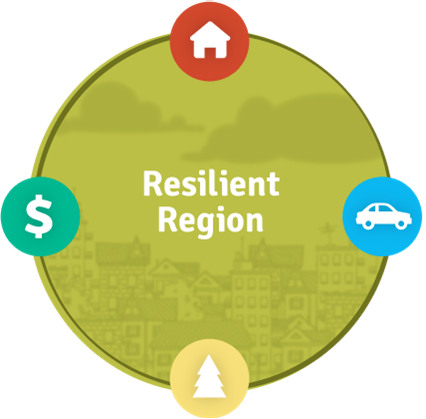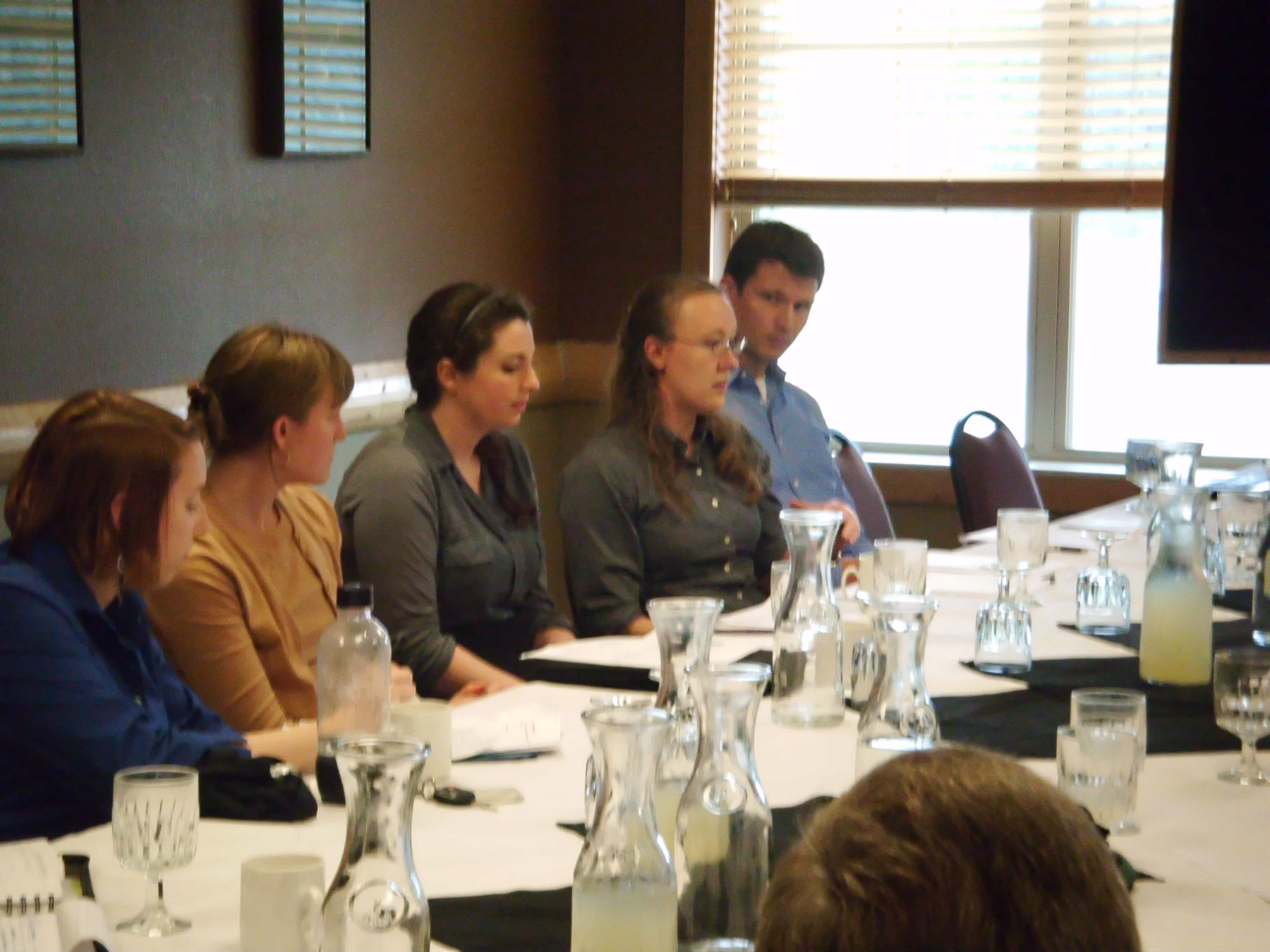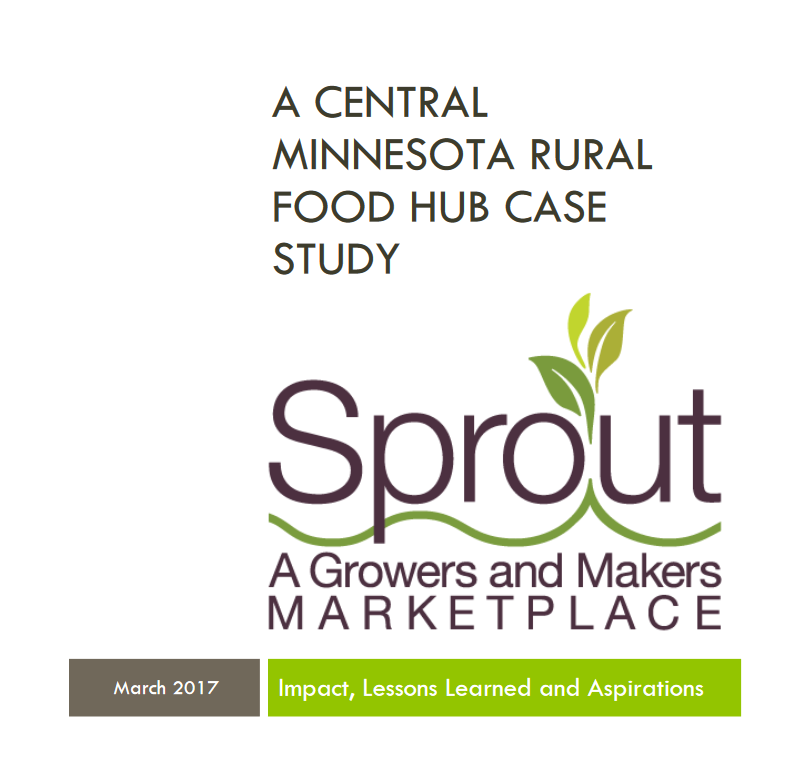Economic Engines
The Resilient Region Plan

Table of Themes Cross Referenced with Principles & Source Economic Development issues, goals, recommendations and action steps may be found under Theme 5: Education & Workforce Development, Theme 7: Economic Engines, Workgroup column with code "E" and CEDS, which referred to the 2011 Comprehensive Economic Development Strategies. (Final Report Reference: Appendix B).
CEDS 2013 The HUD/DOT/EPA Sustainable Communities Regional Planning grant required a fully integrated plan with the four disciplines AND required separate regional plans for Housing, Land-Use, Transportation and Economic Development. To avoid duplication of efforts, the 2012 CEDS is ALSO the Resilient Region Economic Development Plan (Final Report Reference: Appendix D-1).
Ten projects were chosen through an evaluation process during the 2011 Sustainable Communities Regional Planning process. These were identified as vital to moving forward many of the preliminary work group recommendations. Funding was awarded in the Fall of 2012 by USDA Rural Development. The white papers have been combined into the CEDS Vital Projects (Final Report Reference: Appendix D-2).
William Mitchell Law School, U of MN CURA, and U of MN Law School students assisted the project in developing a number of policy tools:
- The Model Comp Plan provides sample city and county policies to support enhancing economic competitiveness (Final Report Reference: Appendix I).
- A section of the Policy Toolkit provides a review of resources to support economic development (Final Report Reference: Appendix H).
The Location Map is an interactive mapping tool that displays Work Force Centers, Economic Development Centers, Clinics, Hospitals, Colleges, Housing and Redevelopments and the Jefferson Bus Line Stops.
Economic Development Resources
2014 Comprehensive Economic Development Strategy (CEDS)
2014 Resilient Region/CEDS Project Proposals
goals, recommendations and action steps:
Economic Engines Issue 1
Financing: This issue involves the availability of capital to new and expanding businesses in the region, in today’s credit market, accessing capital can be a challenge for businesses, especially entrepreneurs and companies in research and development stages. Alternative financing mechanisms should be created to fill this void, such as microenterprise loan funds or local venture capital financing.
Economic Engines Goal
Economic engines: The region focuses on exporting manufactured goods and agricultural products in order to bring dollars into the regional economy. The region also focuses on tourism and the arts which bring dollars into the regional economy from outside the region. The health care sector increases to provide a high quality of life. The education sector adapts to training residents for jobs in the region. Government employment decreases.
Economic Engines Issue 2
Agriculture CSAs: We must protect our region’s agricultural heritage and support smaller-scale efforts like Community Supported Agriculture (CSA). We should focus on developing a land use plane that keeps our prime farmlands in production rather than fragmenting and converting them to subdivisions. CSAs and local farmer’s markets are excellent ways to promote local agriculture and affordable local food production.
Economic Engines Issue 3
Arts and culture: A unique arts and cultural environment in our region is a potential economic driver as well as the ongoing trend in ethnic diversity. How the region chooses to preserve its land and cultural traditions and make use of these assets in the future will have a direct impact on its economic vitality.
Economic Engines Issue 4
Economic engines: Prioritization of economic engines that the region will focus on in efforts to enhance economic vitality.
Economic Engines Recommendations and Action Steps
Indicators of success
|
Baseline: |
|
Benchmarks for Success: |
|
Economic sector changes[1]. Current employment trendsare an Increase in Education & Health Services (7.2%), Decrease in Trade, Transportation and Utilities (-5.2%), Increase in Leisure and Hospitality (10.8%), Decrease in Manufacturing (-22.6%), Increase in Public Administration (18.6%), Increase in Professional and Business Services (0.4%), Decrease in Construction (-25.1%), Decrease in Financial Activities (-1.7%), Decrease in Other Services (-8.7%), and increase in Natural Resources and Mining (10.2%). [1] Region Five Profile. (2011, March 9). Completed by Nate Door, Regional Analyst, MN DEED. |
|
Economic Engines.The region focuses on exporting manufactured goods and agricultural products in order to bring dollars into the regional economy. The region also focuses on tourism and the arts, which bring dollars into the regional economy from outside the region. The health care sector increases to provide a high quality of life. The education sector adapts to training residents for jobs in the region. Government employment decreases. |
champion interview video
Champion Arlene Jones, Owner, The Farm on St. Mathias
Champion Sandy Voigt, Regional Business Specialist, NCEDA
PRESS RELEASES
Todd County Food Processing Business Plan
Champion Reports

Region Five Development Commission is a regional hub for the WealthWorks approach and is committed to broadly sharing their on-the-ground experience with the WealthWorks approach and principles. WealthWorks regional hubs function as part of a learning community, committed to learning from each other and improving on this framework. Regional hubs also provide a way for interested practitioners to learn more about and connect with organizations implementing WealthWorks on the ground, and to support work at the state, regional and local levels. Regional hubs, like Region Five Development Commission can help in the following ways:
- organize and deliver regional training
- enhance peer to peer learning and sharing within a region and between states
- promote networking across state boundaries
- allow for sharing of stories, challenges, opportunities and best practices
- provide for support for local coordinators
- leverage resources
For more information about WealthWorks, visit www.wealthworks.org. For more information about how you can learn about, be trained in, or implement WeatlhWorks, contact Dawn Espe at 218-894-3233 x3 or despe@regionfive.org.
 |
Growing Food Connections: Building from the Inside Out in Region 5, Minnesota: A Rural Region’s Effort to Build a Resilient Food System |
SPROUT Local Food HUB 
Economic Contribution of Sprout Food Hub
Choose Health PowerPoint: Building an Inclusive Regional Food Economy
Local Foods Planning and Zoning Report
Postharvest Handling Workshop Press Release
SPROUT Local Food HUB Gathering Videos
Sprout Press Release Grand Opening April 2016
A Central Minnesota Rural Food Hub Case Study
Building New Models of Local Food Regional Resilience
Here's a great video that was put together by the Widseth Smith Nolting (WSN) media personnel from the Grand Opening of the Sprout Food Hub in April 2016. WSN was intsrumental in the remodeling project of the former Crestliner building in Little Falls, MN into a thriving food hub and marketplace we now know as Sprout.
Here's a short clip from the Lakeland News featuring the Grand Opening of Sprout Food Hub and Marketplace!
For more information on Choose health, please select the healthcare tab.
County Hazard Mitigation Plans
Want to learn more? Interested in becoming involved with this work?
Contact Dawn Espe at Region Five Development Commission and she will put you in touch with one of the theme champions.
THEME CHAMPIONS
Greg Bergman, Director, Small Business Development Center
Vicki Chepulis, Grants Coordinator, Five Wings Arts Council
Arlene Jones, Owner, The Farm on St. Mathias and SPROUT Food Hub
Sandy Voigt, Regional Business Specialist, R5DC

